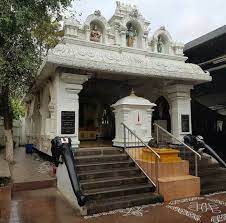It is proposed that this article be deleted because of the following concern:
If you can address this concern by improving, copyediting, sourcing, renaming, or merging the page, please edit this page and do so. You may remove this message if you improve the article or otherwise object to deletion for any reason. Although not required, you are encouraged to explain why you object to the deletion, either in your edit summary or on the talk page. If this template is removed, do not replace it . The article may be deleted if this message remains in place for seven days, i.e., after 18:13, 31 May 2025 (UTC). Find sources: "Hinduism in Nigeria" – news · newspapers · books · scholar · JSTOR Nominator: Please consider notifying the author/project: {{ subst:proposed deletion notify |Hinduism in Nigeria|concern=lacks reliable sources, notability, and contains unsourced and potentially promotional content}} ~~~~ |

This article needs additional citations for verification .(February 2008) |
| | |
| Total population | |
|---|---|
| Around 800,000 (2022) | |
| Regions with significant populations | |
| All Over Nigeria specially in Lagos, Abuja, Port Harcourt, Onitsha, Ogbomosho, Ibadan and Kano. | |
| Religions | |
| Hinduism | |
| Related ethnic groups | |
| Indians in Nigeria and Hindus |
Hinduism is a minority faith in Nigeria. Hinduism spread to Nigeria primarily through the arrival of Hindus from India and by way of ISKCON. Sindhis were the first to arrive in Nigeria in the early part of the nineteenth century. Most of the ethnic Nigerian Hindus were converted to Hinduism by the works of ISKCON. [1]

